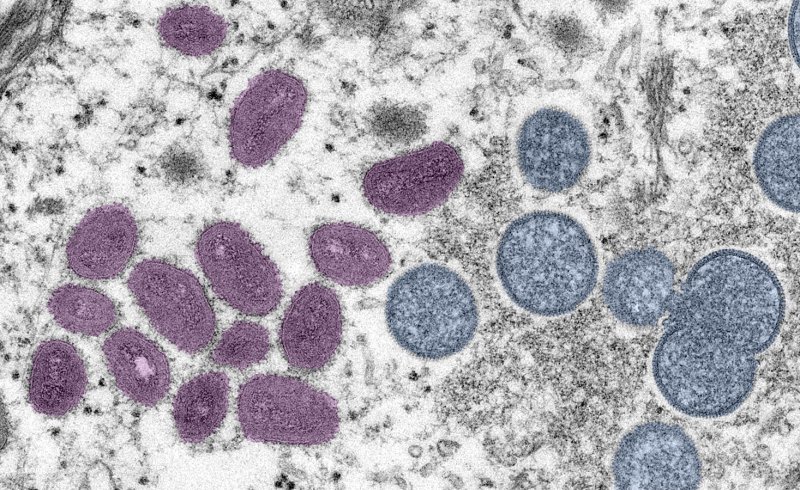1 of 2 | Since early May, 29 countries have confirmed more than 1,000 cases amid the ongoing recent outbreak of the disease. Photo by Cynthia S. Goldsmith, Russell Regnery/
CDC/
Wikimedia Commons
June 9 (UPI) -- With nearly 30 nations confirming the existence of rare monkeypox cases, the head of the World Health Organization has warned that there's a "real risk" that the virus could spread to nonendemic countries.
Director-General Tedros Adhanom Ghebreyesus issued the warning Wednesday, saying that 29 countries have so far reported more than 1,000 infections of the virus since early May.
"The risk of monkeypox becoming established in non-endemic countries is real," he said at a news conference. "WHO is particularly concerned about the risks of this virus for vulnerable groups including children and pregnant women."
Monkeypox is a rare disease endemic to parts of West and Central Africa that was first identified in humans in 1970. Since then, there have been a handful of outbreaks in nonendemic countries, with the first recorded in 2003 when the United States documented more than 70 cases of the virus.
The first case of the new outbreak was diagnosed in Britain last month in a patient with recent travel history to Nigeria. On Wednesday, British health officials confirmed an additional 19 monkeypox cases for a total of 321.
Health officials have said that most of the new infections have been found men who had sex with other men, but Tedros said on Wednesday that some nations have begun to report community transmission -- which means there are cases without a known point of infection, including some women.
The sudden and unexpected appearance of the disease in nonendemic countries also suggests that it may have been spreading undetected for some time, he said. To prevent the virus from becoming established, Tedros urged nations with outbreaks to identify all cases and contacts to control the spread.
To help countries fight the outbreak, the WHO has released guidance on surveillance and contract tracing and will give more on clinical care, infection prevention and control, vaccination and community protection in the near future.
Vaccines for smallpox, which was declared eradicated years ago, have proven effective against the virus, but are limited in supply.
Sylvie Briand, WHO director of the Pandemic and Epidemic Diseases Department, told reporters that officials are looking to see how many vaccine doses are available and contacting manufacturers to understand their capacity for production.
"What is really important currently, it is making sure that we prevent further amplification of cases, which means that we need to ensure a safe gathering in the future so that we don't have amplifying events," she said.
The first case in the United States was found in Massachusetts in May in a person who'd traveled to Canada. Since then, the Centers for Disease Control and Prevention has reported dozens more nationwide.















